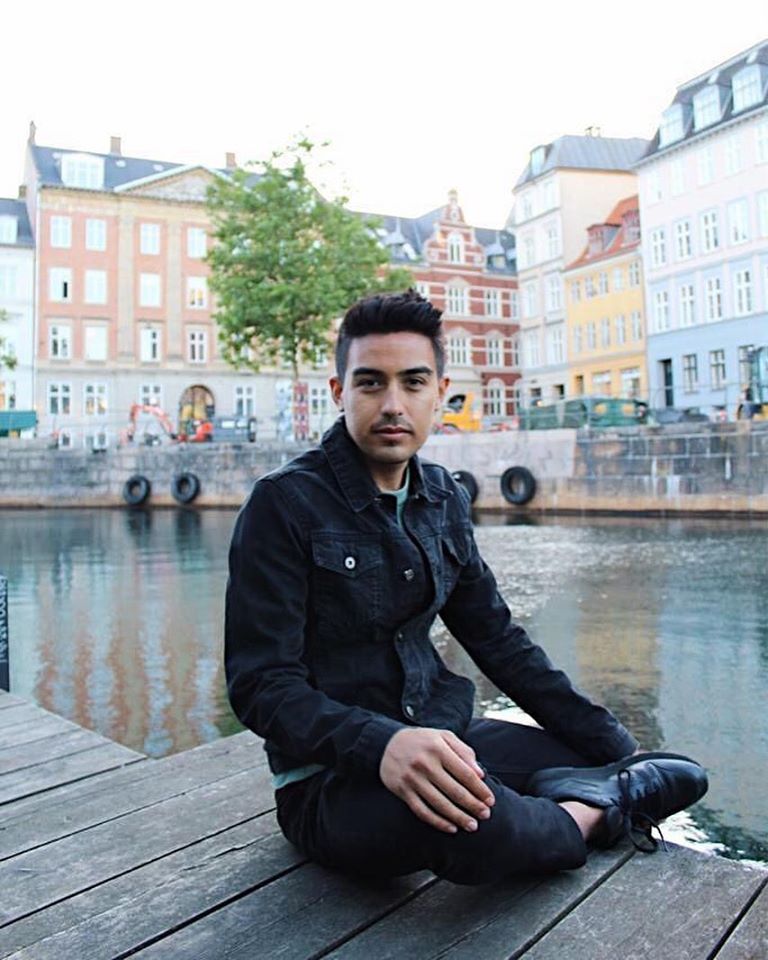02 Dec What Brought Me Here: Robby Alva
 Meet our newest colleague, Robby Alva, who recently joined Connect the Dots as a Community Development and Engagement Associate! Based in Philadelphia, Robby comes from a multicultural and international background, and has been informed by his professional and personal experiences to dedicate his career to shaping more inclusive and livable cities. Prior to Connect the Dots, Robby worked in a variety of strategic communications and content marketing roles within the real estate and travel industries, and studied Media, Culture and Communication at New York University. Inspired to transition into the world of community development and urban planning, Robby also holds a Master’s degree in Urban Studies from the Universities of Brussels, Vienna, Copenhagen and Madrid.
Meet our newest colleague, Robby Alva, who recently joined Connect the Dots as a Community Development and Engagement Associate! Based in Philadelphia, Robby comes from a multicultural and international background, and has been informed by his professional and personal experiences to dedicate his career to shaping more inclusive and livable cities. Prior to Connect the Dots, Robby worked in a variety of strategic communications and content marketing roles within the real estate and travel industries, and studied Media, Culture and Communication at New York University. Inspired to transition into the world of community development and urban planning, Robby also holds a Master’s degree in Urban Studies from the Universities of Brussels, Vienna, Copenhagen and Madrid.
Like many in this field of work, my pathway was not a straight line. From a young age, I wanted to be an anthropologist or an archaeologist. I was always attracted to seeing the world in different ways and through different peoples’ experiences while addressing meaningful questions in a way that other disciplines don’t embrace in the same way – community, belonging, meaning. Coming from a multilingual and multicultural family background and growing up in the sprawling Los Angeles region, I had always been sensitive to the vast differences and co-existing realities between people from all walks of life around me.
I was interested in the idea that each of their individual perspectives held its own power and ability to contribute in some way to their immediate communities. I first started working directly with communities at my local Native American food bank while in high school, first exposing myself to terms I would later become more familiar with: inequity, food deserts, exclusion. Why were some opportunities and benefits of the city not shared by all segments of society?
After being recognized by my local Congressman for my grant-writing efforts locally, I secured a Martin Luther King Jr. Scholarship and moved to New York City to embark on my studies. While pursuing my academic interests in better understanding the impacts of media technology within varied cultural contexts, I continued working with community building efforts in urban greening and education. I loved developing relationships with people caring for their environment and neighbors, especially in a city where no two people were alike, each with their own stories and abilities.
I later worked in the digital marketing and public relations industry for real estate and travel industry clients, gaining valuable digital and web design skills with a better understanding of how content and proper messaging can shape your storytelling process and influence who is on the receiving end. And yet, I was still interested in understanding how to create more inclusive and livable urban spaces. I decided to expand my horizons even further and completed my Master degree in Urban Studies across four European universities, taking unique insights from each city.

Guided by the idea that opportunity and benefits of economic growth should be widely shared by all segments of society, I took a particular interest in the idea of smart cities and if technology should have a role in improving quality of life and inclusion, if any. What does it mean for a city to be smart and who benefits from it?
My inquiries led me to center my master thesis around the perception by residents of the smart city concept in Madrid, Spain while also working as a junior consultant with the Smart Cities and Digitalisation team at the United Nations Development Programme. Although it can be a fundamental tool for social inclusion, I learned that many forms of technology also can create disparities and be used as an expensive blanket solution for many problems that could be dealt with better by consulting input from community members. Lack of affordability for digital devices, access to internet connectivity, and overall awareness of their utilities correspond closely with longstanding inequalities such as income, education, race, and are just some a couple of hurdles to progress in equity. For cities, this has profound implications for “digitally invisible” residents, skewing official data, compromising planning efforts, and contributing to the widening of the inequality gap at multiple scales. It’s necessary to meet people where they are, a core principle I’ve learned as part of Connect the Dots’ work.
As I’ve learned more about the Connect the Dots approach, it has echoed what I learned in my work and prior experience. Technology can not be used as a catch-all solution for participatory practices or access to the community, but rather a layered approach is needed. Compared to a one-size-fits-all approach, a successful engagement approach is one that is tailored to the local context and ensures that participation is impact-driven. My position at Connect the Dots is a continuation of this idea in our work to center the perspectives and ideas of the residents themselves that collectively make communities and cities great. I’m excited to become a part of a committed team dedicated to implementing inclusive processes in practice.
